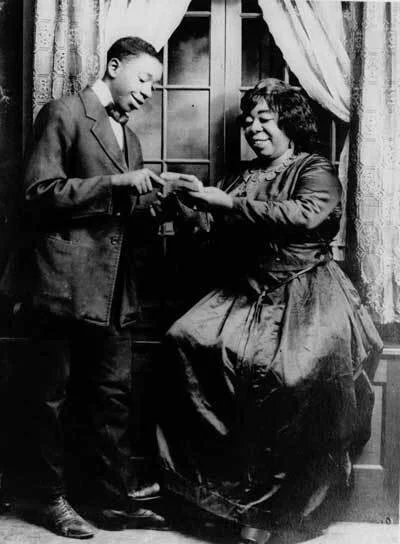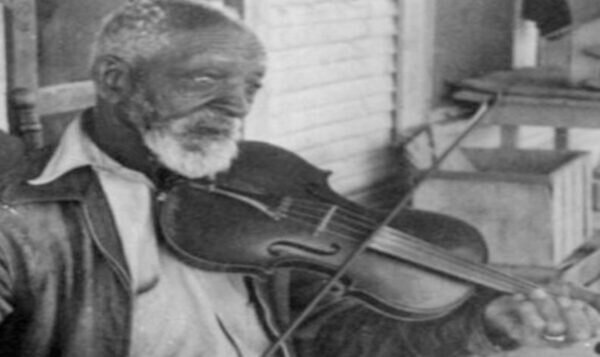Mimetic Extraction and Commodification in the Blues
Much has been said about the influence exerted upon white mainstream culture by blackface minstrelsy in the 19th century. The demise of the genre and the rise of the blues heralded Black folk’s construction of a popular space in which they sang of their real life experiences. Similar to blackface, the blues in mainstream White culture operates as the space in which racial difference is negotiated and utilized to control blackness and direct its energy according to an artist's own cultural aesthetic and worldview.
The Blues is Our Story
The blues is healing. The blues is freedom. That is the message I take with me everywhere I perform. As an African American blues artist, I feel it is essential to have a clearer understanding of this music. Sadly, the real knowledge of what this music is about is too often overlooked. Blues began out of a need for African Americans to seek healing and freedom in a society that denied them both. This music allowed black folks a way of expressing their humanity in a world that, for 400 plus years, refused them of their humanity. The blues was a way of saying, “we matter.”
Langston Collin Wilkins - Folklorist Of The Month
Langston’s commitment to the preservation, documentation, and the raising of awareness regarding African American music, tradition, cultures and communities culminate in his making significant contributions to the black folk narrative, black folklife and the many expressions birthed in the urban and rural landscape of African American life.
Voice from The Past
On May 25th, 1894, Anna Julia Cooper, an African American activist, educator, and writer, spoke at a Hampton Normal School (now Hampton University). Invited to speak at a Folklore Conference, Cooper delivered a speech in a large assembly hall, addressing an audience of teachers, trustees, Hampton graduates, and folklore society members. What did she discuss that Friday evening? African American folklore.
Haitian emigration
On June 20, 1859, the schooner A.C. Brewer left New Orleans wharf bound for Port-au-Prince, Haiti. Onboard were 200 free people of color, mostly families, who planned to emigrate to Haiti permanently. They were answering a call from the Haitian government for African Americans to put their skills to work in the service of the first independent, Black nation in the western hemisphere. The young island-nation needed sailors for its ships, field workers for the abandoned sugar and coffee plantations left by French planters after the revolution, and other forms of nation-building.
“Three Sides to a Story: Slave Breeding, the Academy and Black Collective Memory in the United States”
Determining if slave breeding actually occurred or if it is merely a myth has been for the academy one of the most controversial topics in the study of American slavery. Sources such as slave narratives, oral histories, and abolitionist materials were assumed to be unreliable, and plantation financial records documenting the practice have yet to be located. While professionally trained historians are generally incredulous that slave breeding existed, black American collective memory continues to testify to its truth.
The Drive
It’s mid-afternoon on a Friday, back in August 2019, the first week of school, and Annette and I bust the kids out early to take a trip. There are questions, games, and mild disagreements, and after an extended period of what Annette calls “crunkness,” during which time Selah, six, and Ida, four, run around quarter clothed and negotiate for sweets somewhat successfully, we pile back into the car and inch our way through typical New Orleans midday traffic.
Daryl Davis - Interviewing The KKK, Traditional Black Music, and more
Daryl Davis, a musician, author, and race relations expert was assaulted with flying bottles during the Cub Scout parade in 1968 when he was 10. This was his first experience with racism. He spent years studying and researching to answer the question he had about racial hatred.
Blues Narrative - Mr. Waltho Wallace Wesley
Mr. Waltho Wallace Wesley, a descendant from the Muskogee Creek and Seminole Nations. A Life long resident of Indian territory in present-day Oklahoma, and ‘Black’ Indian historian.
Subscribe to our newsletter.
Sign up with your email address to receive news and updates.




















